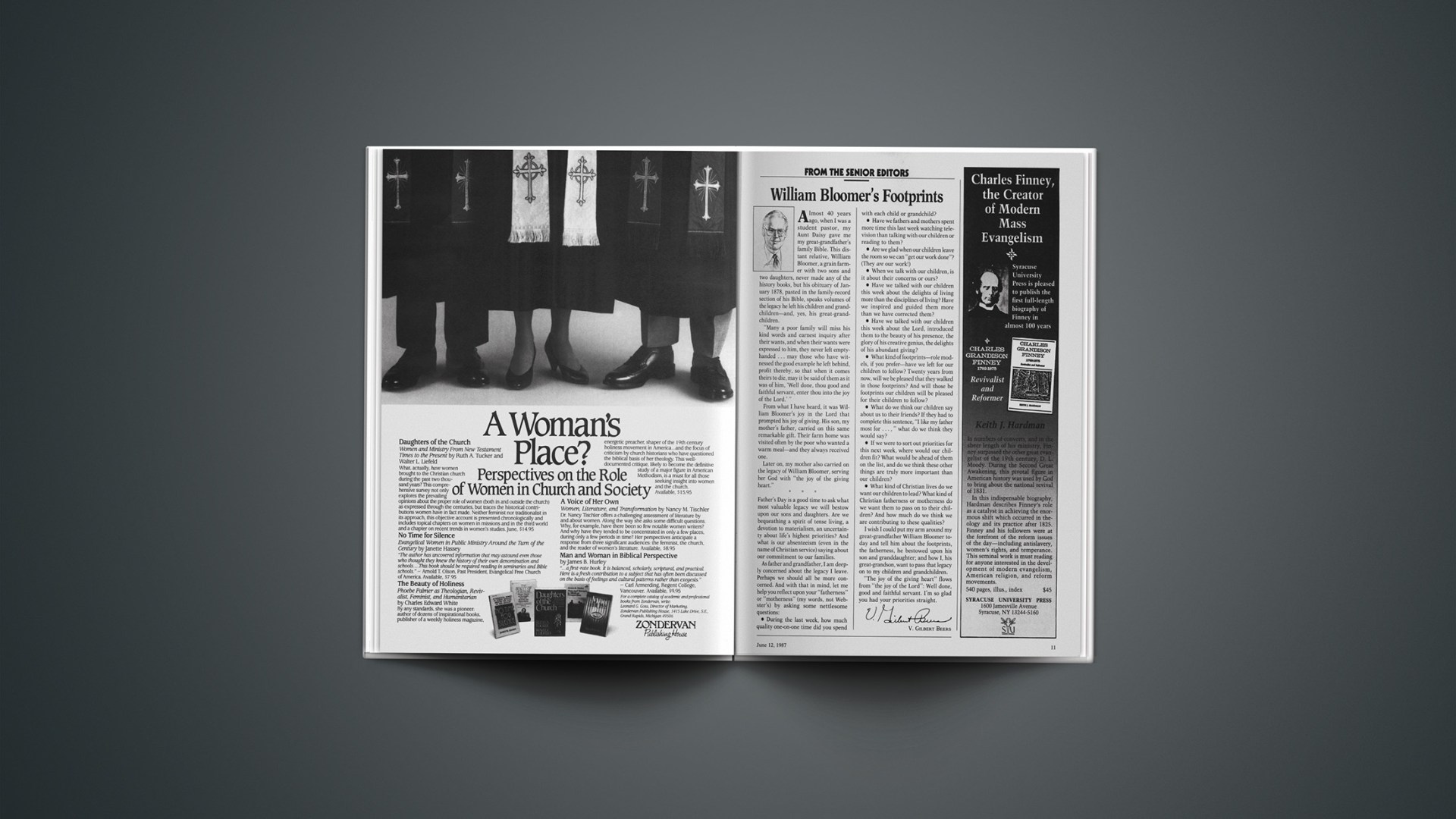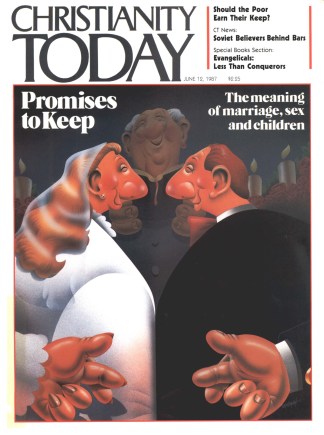Almost 40 years ago, when I was a student pastor, my Aunt Daisy gave me my great-grandfather’s family Bible. This distant relative, William Bloomer, a grain farmer with two sons and two daughters, never made any of the history books, but his obituary of January 1878, pasted in the family-record section of his Bible, speaks volumes of the legacy he left his children and grandchildren—and, yes, his great-grandchildren.
“Many a poor family will miss his kind words and earnest inquiry after their wants, and when their wants were expressed to him, they never left empty-handed … may those who have witnessed the good example he left behind, profit thereby, so that when it comes theirs to die, may it be said of them as it was of him, ‘Well done, thou good and faithful servant, enter thou into the joy of the Lord.’ ”
From what I have heard, it was William Bloomer’s joy in the Lord that prompted his joy of giving. His son, my mother’s father, carried on this same remarkable gift. Their farm home was visited often by the poor who wanted a warm meal—and they always received one.
Later on, my mother also carried on the legacy of William Bloomer, serving her God with “the joy of the giving heart.”
Father’s Day is a good time to ask what most valuable legacy we will bestow upon our sons and daughters. Are we bequeathing a spirit of tense living, a devotion to materialism, an uncertainty about life’s highest priorities? And what is our absenteeism (even in the name of Christian service) saying about our commitment to our families.
As father and grandfather, I am deeply concerned about the legacy I leave. Perhaps we should all be more concerned. And with that in mind, let me help you reflect upon your “fatherness” or “motherness” (my words, not Webster’s) by asking some nettlesome questions:
- During the last week, how much quality one-on-one time did you spend with each child or grandchild?
- Have we fathers and mothers spent more time this last week watching television than talking with our children or reading to them?
- Are we glad when our children leave the room so we can “get our work done”? (They are our work!)
- When we talk with our children, is it about their concerns or ours?
- Have we talked with our children this week about the delights of living more than the disciplines of living? Have we inspired and guided them more than we have corrected them?
- Have we talked with our children this week about the Lord, introduced them to the beauty of his presence, the glory of his creative genius, the delights of his abundant giving?
- What kind of footprints—role models, if you prefer—have we left for our children to follow? Twenty years from now, will we be pleased that they walked in those footprints? And will those be footprints our children will be pleased for their children to follow?
- What do we think our children say about us to their friends? If they had to complete this sentence, “I like my father most for …,” what do we think they would say?
- If we were to sort out priorities for this next week, where would our children fit? What would be ahead of them on the list, and do we think these other things are truly more important than our children?
- What kind of Christian lives do we want our children to lead? What kind of Christian fatherness or motherness do we want them to pass on to their children? And how much do we think we are contributing to these qualities?
I wish I could put my arm around my great-grandfather William Bloomer today and tell him about the footprints, the fatherness, he bestowed upon his son and granddaughter; and how I, his great-grandson, want to pass that legacy on to my children and grandchildren.
“The joy of the giving heart” flows from “the joy of the Lord”: Well done, good and faithful servant. I’m so glad you had your priorities straight.
V. GILBERT BEERS










